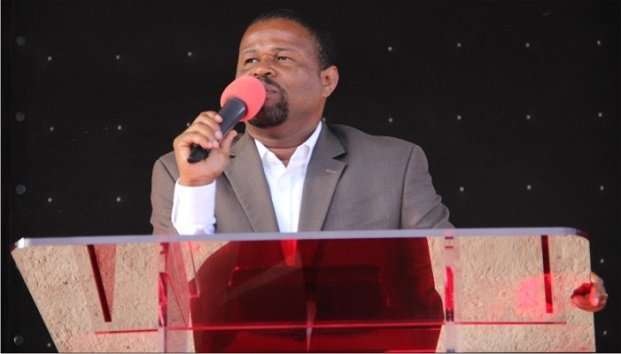Muscadin André’s Contribution to the Modernization of Evangelical Music
Internet users would be interested in discovering the Host Muscadin André now. What is his secret? Where does he get this comfort and this joy that he brings to all those who listen to him? Why do people tune in from 9 a.m. to noon to listen to the show on a Saturday morning? What is the source of Muscadin André’s charisma? Why do we choose Muscadin André?
The secret is prayer. I like silent prayer, I like consecration. My best ideas come to me when I meditate while listening to music. This is where my best inspirations come from. I had learned at school that my problems should not interfere with my show. An evangelical leader, a messenger of the Good News must communicate what is good. When I feel that I cannot overcome my problems, I stay at home. But I’m not going to tell people about my life. People perceive me as a person full of power and without personal problems. No offense to those who think so. I know that I prepare myself in prayer, which allows me to remain calm in difficulties. So this is what explains this “exaggerated” positive image that people have of me. It is the consecration in prayer that guides me, the spiritual and psychological preparation ensure dedication and constancy in my broadcasts. Imagine what would happen if, because of a difficulty, I gave up on the show. How many people would have missed the opportunity to accept the Lord? How many people would not have time to give up suicide? I remember one day, a Monday morning at the end of February, it was Carnival, someone hit my car when I stopped to let a pedestrian pass. I had prepared my show well. When I looked at the rear of the vehicle, after the impact, I wanted to let it go so as not to miss the broadcast. But the man blocked my way and forced me to go to a mechanic to have the car repaired, supposedly at his expense. But, as time passed, the show time came, and the man refused to pay. I simply said to him: “Bondye beni-W. Asked me where. » It would have been better if I had not said that. The policeman was so upset that he asked me for explanations. I told him that he has a weapon, but I just have my knees. He was so angry and spoke so loudly that it led me to leave the car in the garage so as not to miss the show. This event would lead to the conversion of a great Freemason. When I got on the radio, I just told the listeners the story, without telling my life story. A former American soldier was connected. He called me and asked me what I wanted to do with this policeman. I told him that I left him to the mercy of God. He told me he could send it to the provinces. I replied: “Don’t worry. One day God will touch his heart and he will convert. » At these words, the listener asked me to come and pray for him. I went to his residence. That day, this Freemason accepted the Lord Jesus as his Personal Savior.
If I understand correctly, it often happens that thanks to your broadcasts, people are converted to Jesus…
Effectively. The story of the people you see accepting the Lord in “Exaltation” is not new. I had this thought for a long time but never had the space to put it into practice. When I was in “The Voice of the Gospel”, I tried several times to lead people to conversion. This happened many times, but I lacked basic theological concepts. This is what led me to study theology. And from the Radio “Inspiration”, I applied what I learned, always according to the inspiration of God.
With your in-depth experience of evangelical musical groups, with your way of following the evolution of the evangelical environment, as a facilitator, how do you judge evangelical music in terms of an originality that it must demonstrate on the one hand, as for the spiritual depth that it should convey, on the other hand, and finally, in relation to the mission of evangelization that we have as musicians, as singers. What do you think of evangelical music?
I can say that evangelical music has undergone an evolution in recent years. She has not regressed. On the contrary. In the past it was more classic, more formalist, of course, but today we feel a sort of awakening that was unavoidable. Of course, we see slippages at times, but I can say that what is happening now is something I wanted. I have even promoted it since the start of my Ministry. When I worked at “Energy”, I took responsibility for playing “Live” audio tapes that I had taken the time to record with my cassette machine in Churches. I have not been spared criticism on this subject. But I held on. And this is where the phenomenon that we know today was born, of adoration, of “Live” musical praise. This is a different type of worship; it is a new aspect of the Church that the artist brings even inside your home. And it’s wonderful! The soul of the Haitian person needs, today, to wake up. The art in music is not enough for him. He also needs Revelation. Live music has brought many changes to Evangelical Art. Sometimes we criticize the texts but these texts are often revealing; This is called a “rhema”. Certain texts that the artist sings are inspired by him on site. They are not designed in advance. They come at a certain time and the fact of being recorded, they are sometimes out of context, when they are heard at a time different from that of their composition. In the past, evangelical music was more classical, more formalist. I am thinking of Alabanza, Zetwal, G8, Adonaï. Now we are seeing an awakening. Now everyone wants to get involved. It’s not easy for everyone. Many suffer from this.
Interview:Jose Bautista
Editor:Pascale MontFort
Vie politique de son pays . est-ce que le chrétien peut y participer ?



